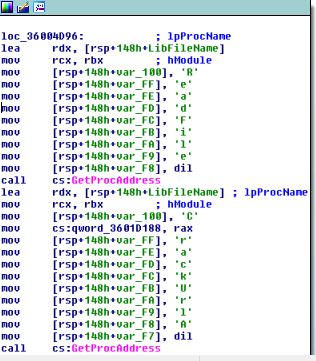Is there a trick in IDA Pro to deal with unrolled loops like in the screenshot below?

Another, possibly related compiler optimisation is this - instead of loading an offset into a memory area, it does mov for each character (MSVC8). Any quick way to deal with these?

const char szName[] = {'a', 'b', 'c', 0};) it doesn't